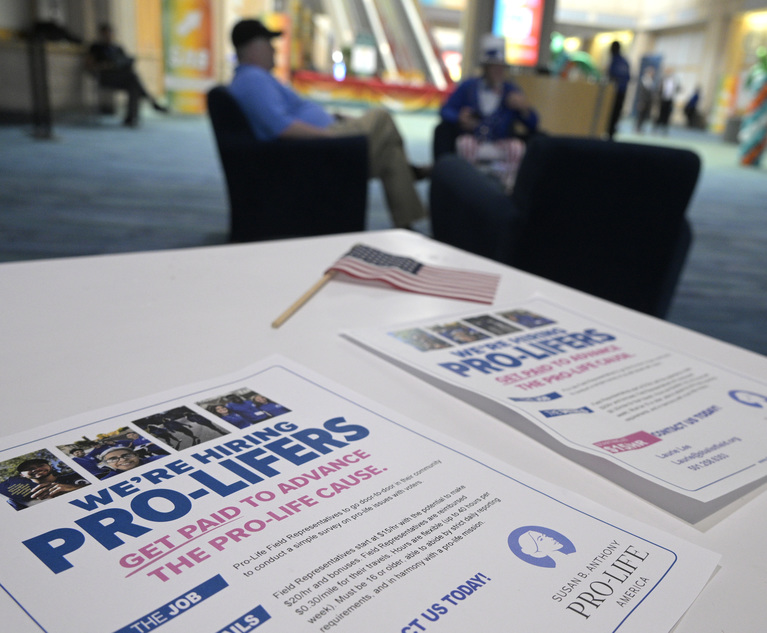Committee On Judicial Ethic

March 03, 2024 | New York Law Journal
Judicial Ethics Opinion 23-72(1) Where the judge's former law student intern has been hired by a local law firm as a summer associate, and that firm is now appearing before the judge on a case the former intern worked on during the internship, but has notified all parties that the former intern will be insulated from the case, the judge may preside in the case after making full disclosure of the relationship to all parties on the record. (2) The judge is not prohibited from speaking to the former intern on non-work matters during the pendency of the case.
By Committee on Judicial Ethics
5 minute read

February 29, 2024 | New York Law Journal
Judicial Ethics Opinion 23-71A support magistrate who previously served as the supervising attorney at the Department of Social Services may handle child support cases filed after the magistrate's departure from the agency, provided there is no substantial connection between the circumstances underlying the prior proceeding and the facts and legal issues presently before the magistrate. If such connection exists, disclosure or disqualification is required.
By Committee on Judicial Ethics
6 minute read

February 28, 2024 | New York Law Journal
Judicial Ethics Opinion 23-70On these facts, the judge is not required to disqualify from a contentious criminal case, notwithstanding the defense counsel's claims of bias, provided the judge determines they can be fair and impartial.
By Committee on Judicial Ethics
7 minute read

February 27, 2024 | New York Law Journal
Judicial Ethics Opinion 23-69A judge who is a candidate for election or re-election may publicly identify themselves as "pro choice" or "pro life" during the applicable window period, provided the judge also makes clear that they will decide all cases fairly and impartially and in accordance with governing law.
By Committee on Judicial Ethics
6 minute read

February 26, 2024 | New York Law Journal
Judicial Ethics Opinion 23-68A part-time judge may serve on a public hospital board, notwithstanding the board's statutorily delineated inspection, investigative, and reporting functions.
By Committee on Judicial Ethics
6 minute read

February 25, 2024 | New York Law Journal
Judicial Ethics Opinion 23-67A part-time town justice may not serve as counsel to the town planning board in the town where the judge sits.
By Committee on Judicial Ethics
5 minute read

February 22, 2024 | New York Law Journal
Judicial Ethics Opinion 23-66A part-time judge may serve as administrator of the assigned counsel program in a different county from the county where the judge presides.
By Committee on Judicial Ethics
5 minute read

February 21, 2024 | New York Law Journal
Judicial Ethics Opinion 23-65May a part-time judge who is also employed with a school district be a member of the Classified Employees Association and United Teachers unions, given that these unions are active in politics?
By Committee on Judicial Ethics
2 minute read

February 20, 2024 | New York Law Journal
Judicial Ethics Opinion 23-64A full-time judge may not participate in a local bar association's phone bank event where members of the public call in with legal questions.
By Committee on Judicial Ethics
6 minute read

February 19, 2024 | New York Law Journal
Judicial Ethics Opinion 23-62/23-63/23-111On the facts presented, the inquiring administrative judge has full discretion to determine whether there is a substantial likelihood that a part-time judge has committed a substantial violation of the Rules Governing Judicial Conduct and, if so, what action is appropriate under the circumstances.
By Committee on Judicial Ethics
8 minute read
More from ALM
- Legal Speak at General Counsel Conference East 2024: Match Group's Katie Dugan & Herrick's Carol Goodman 1 minute read
- Legal Speak at General Counsel Conference East 2024: Eric Wall, Executive VP, Syllo 1 minute read
- Legal Speak at General Counsel Conference East 2024: Virginia Griffith, Director of Business Development at OutsideGC 1 minute read



